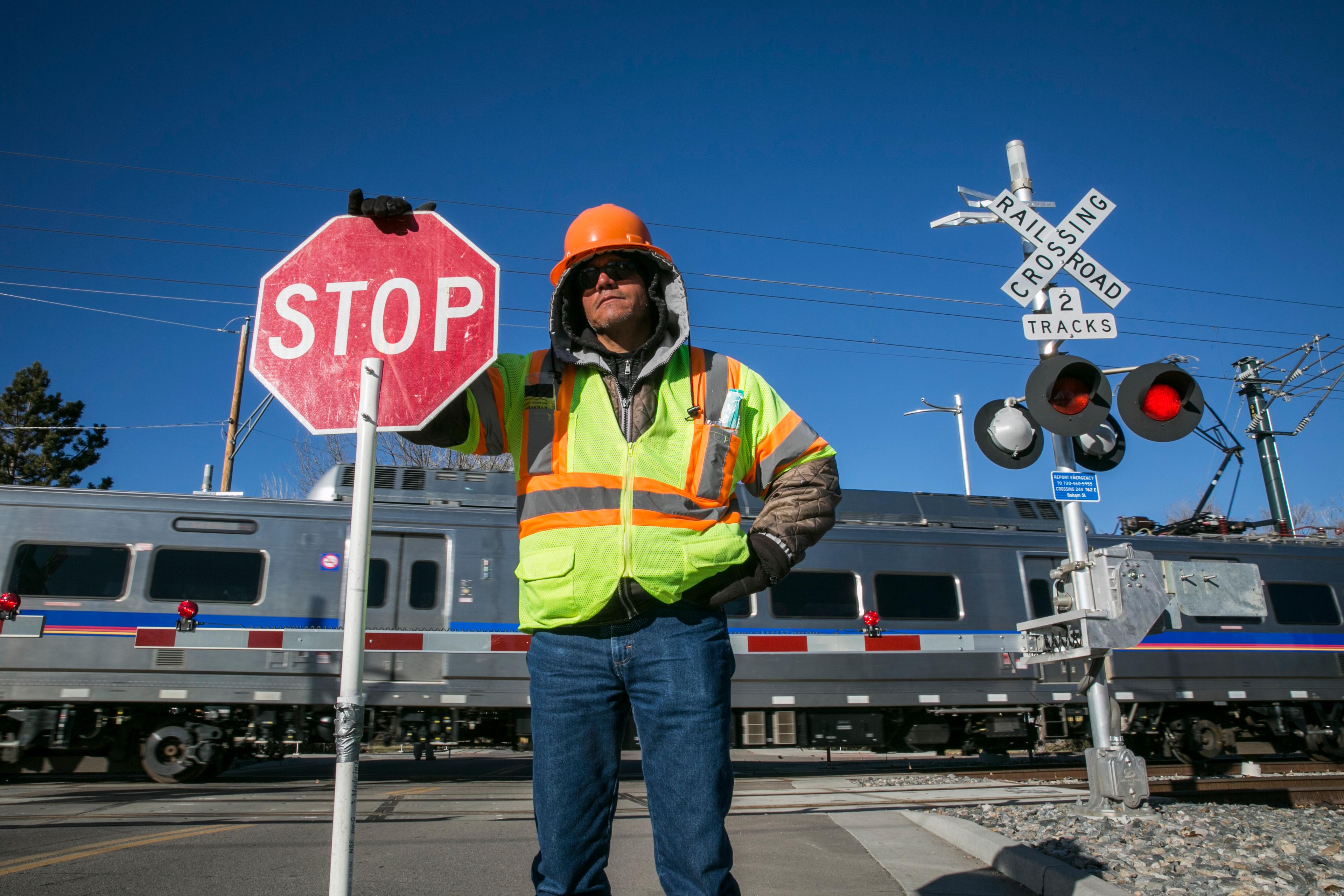

A long-simmering, hushed dispute between the Regional Transportation District and the company that built and operates its flagship commuter rail lines broke into the open Thursday when the firm, Denver Transit Partners, sued RTD in Denver District Court.
In its complaint, Denver Transit Partners blames changes in how federal and state regulatory agencies interpret various laws for its failure to get final sign off for the at-grade crossings and quiet zones on its commuter rail lines.
“It was not clear if the crossings would ever win favor with regulators or if the unprecedented resistance would require that the crossings be replaced with grade separated crossings,” the complaint says.
The company has paid to keep flaggers stationed at each such crossing for most of the last two years, since the lauded “Train to the Plane” opened in April 2016. RTD has also withheld more than $6 million in payments it’s owed, the company said.
The company wants “declaratory relief, monetary damages, and extensions of time to which it is entitled,” according to the complaint. RTD said that could add up to “tens of millions of dollars.”
“It has taken DTP not just months, but years to optimize their system to the point where safety regulators are reasonably satisfied,” RTD said in a statement. “With all due respect, RTD thinks DTP should be looking within, rather than trying to blame safety regulators, for the challenges DTP has faced.”
RTD’s initial press release, sent to reporters late Thursday, marks a distinct shift in tone, from complimentary to combative, between the two entities. They have been in negotiations over costs related to the crossing gate issues for months.
An RTD spokeswoman declined an interview request. Reached by phone, Denver Transit Partners project director John Thompson declined to comment. In a statement sent late Thursday, Thompson said the company is “simply protecting its position by exercising the escalation next steps as outlined in the contractual agreement.”
RTD and DTP both said they would continue to work with each other, while litigation moves through court, to try to open the G Line. That 11.2-mile line from Denver’s Union Station to Arvada and Wheat Ridge was supposed to start service about two years ago.
RTD’s other foray into commuter rail, the delayed N Line, has also been in court. And the A Line has had troubles beyond the crossing gates since it opened, from serious mistakes by operators to a mechanical breakdown that stranded passengers for hours earlier this year. Denver Transit Partners, though, has said more than 95 percent of its trains arrive on time.









